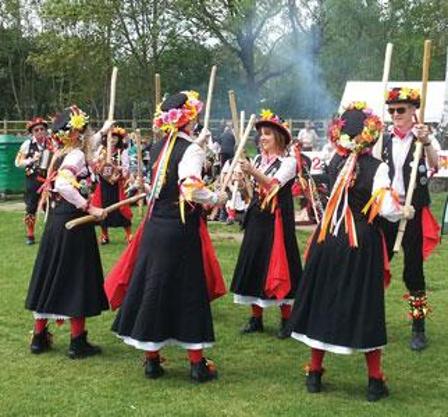A wider tree
A separate musical genre has existed outside the bounds of classical, popular or pop music. This tradition has been passed down through generations, often by word of mouth. It includes ballads, shanties, hornpipes, protest songs, even children's rhymes.

Traditional music is often linked to seasonal festivals such as Christmas or May Day. In mid-19th century Uxbridge, the town's chimney sweeps paraded on May Day to the sound of fiddles, shovels and scrapers. In May 1963, the students of Bishop Winnington School, Ruislip, gave a demonstration of maypole dancing at the Great Barn.
Today, the Uxbridge Folk Club meets in the Royal Naval Association hut, Hillingdon. It hosts open mic nights among the hut's naval memorabilia. Acts appearing at the club have included Plumhall and the Iona Fyfe Trio.
The folk history of the borough continues to evolve - including traditional styles from Punjabi Bhangra to Somali Dhaanto.